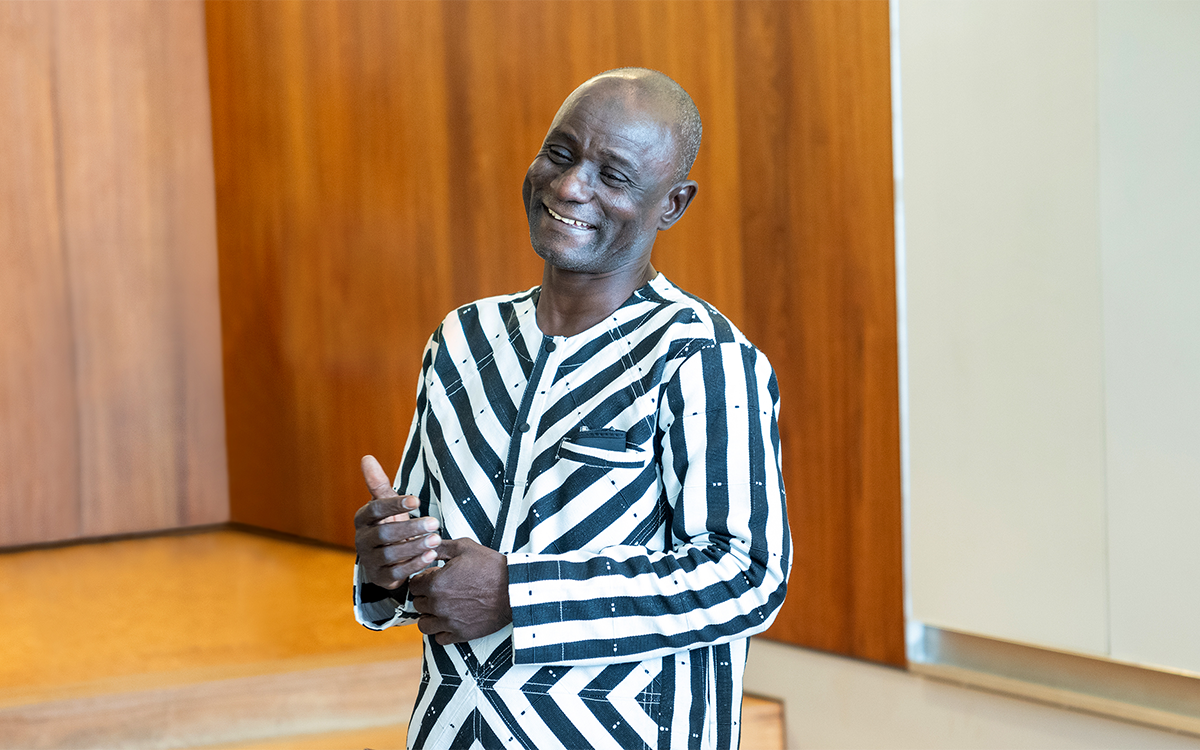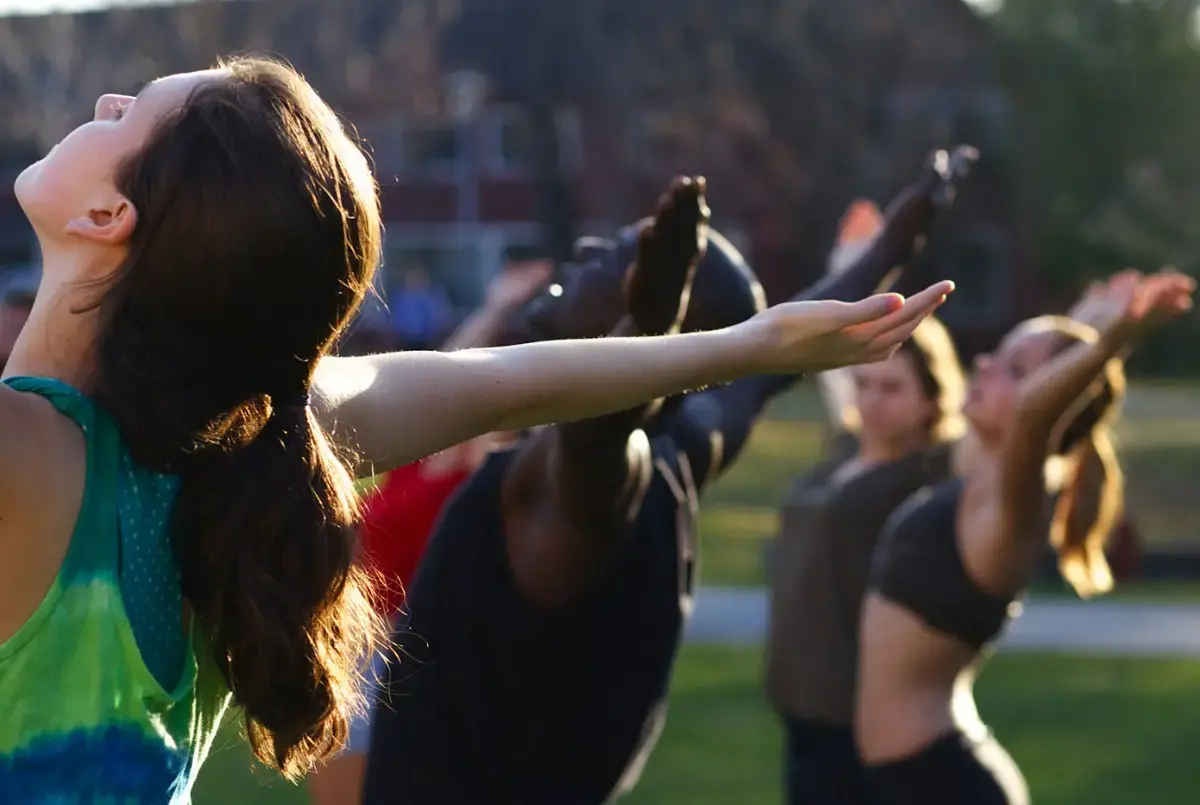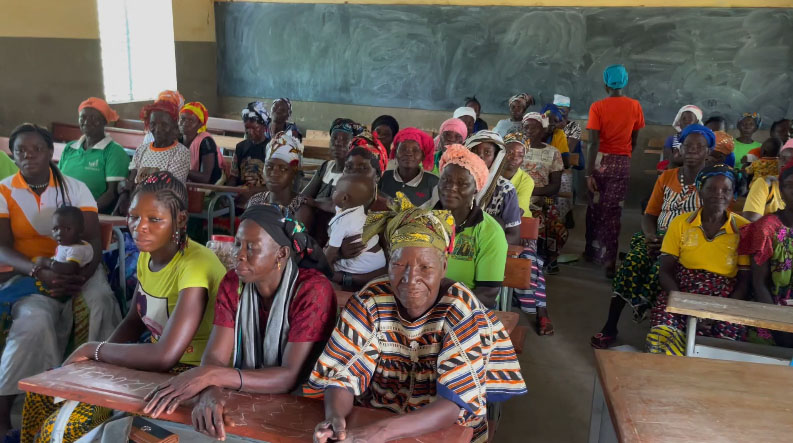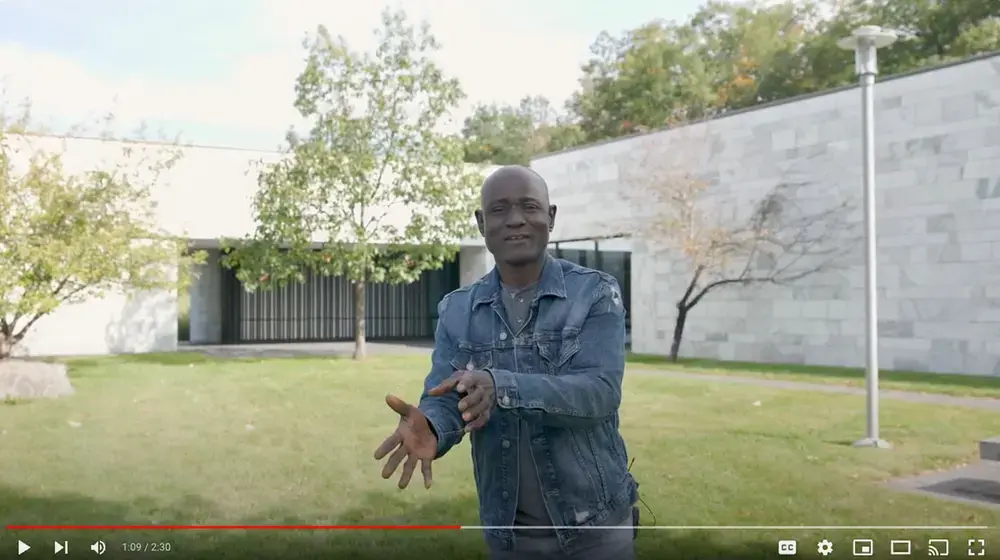Dance as a Bridge
Souleymane Badolo’s people gave him dance, and dance gave him opportunities to learn, choreograph, and teach around the world. Now, he is using his influence to provide greater access to a crucial resource: water.

As a small child, Souleymane Badolo MFA ’13 learned dances from his elders and traditional groups that stayed as guests of his family. He and his friends in Kya, a village of 1,300 in the Central West Department of Burkina Faso, rehearsed all year long to perform during the month-long Ramadan fast, which culminated in a festival in Ouagadougou, the capital city.
His talent and hard work opened doors to greater and greater opportunities and exposure. He won competitions in Burkina Faso and across the continent. He eventually received an opportunity to join a dance company and study contemporary dance with a French choreographer.
“The first day, I went to the workshop, and I said, ‘Oh, I don't like this dance, because this is the white dance,” Badolo said. “It wasn't the same energy. It wasn't the same way we move. And he wasn't using drums, and for me, any dance without the drums, without really dancing with really big energy…” he trailed off shaking his head.
On the second day of the workshop, Badolo didn’t attend. When the director noticed his absence, he sought Badolo out. After explaining what kept him away, he convinced Badolo to return.
“I went back on this day, and it was good. It was a different energy. It wasn't silence,” Badolo said.
Combining African and contemporary dance led to even greater opportunities. He appeared in films about dance and was invited to tour in the United States, where he met other dancers and choreographers. He developed a unique style, neither entirely African nor entirely contemporary.
I decided I don't want to dance like other people,” Badolo said. “I guess I want to have my own form of dancing. I began creating my new movement, my new gesture, my new vocabulary, my new expression of observation. I became a choreographer. Souleymane Badolo MFA ’13
He met Nora Chipaumire, who invited him to join her during a visiting faculty appointment at Bennington College in 2008.
“At that time, I wasn't speaking English,” Badolo said, but he was able to form close relationships with the people at Bennington. “Bennington is my first family in the U.S. I know so many people around Bennington. It's like my home.”

Throughout his time at Bennington, both teaching and as a student in the MFA in Dance (He notes the irony and smiles: “Yeah, before I became a student at Bennington, I was teaching at Bennington.”), he was thinking about his village in Burkina Faso.
During his visits to his home, he noted a slowly worsening crisis: a lack of water. Many children had to wait in line for their turn to get water for their families. He was particularly upset, because they were missing school. He shared his concerns with his new friends and colleagues.
Education is the priority and is essential for anyone,” Badolo said. “Without education, I could not be in the U.S. and doing what I'm doing.
Together with his friends at Bennington, he wrote a proposal to fund a public well in his home village. The water table there is very low, so digging a well requires mechanized equipment not typically available to small villages in West Africa. Together, they were able to secure the funding necessary and make water more available.
“When we got the grant, I was very, very excited,” Badolo said. “I went to talk to the women and the elders at the village. I said, ‘it is not big money, but it's money we can use to start something.’”
Building New Bridges Between Dance and Farming
In this video message from Badolo, he explains how his work has expanded the role of dance from a traditional or ceremonial support for agriculture to building community.
Since receiving the grant to secure water, Badolo has contributed the funds necessary to build two classrooms in his village. While the village needs a third classroom, Badolo is thinking of ways that the village can become self-sustaining. His current focus is to bring more agricultural resources to the community.
In Badolo’s culture, the men farm all of the grain necessary to feed their families. The women generate income to pay for other needs, including schooling, clothes, cooking ingredients, and soap.

“I need a system for the women to be able to sustain themselves,” he explained. “There’s no money for them to buy fresh vegetables. I want to help the women to be able to have fresh vegetables and to make a little profit selling some vegetables.”
Now that the village has adequate water, they can begin a community garden project and raise fruit and vegetables for themselves and to sell. But creating a community garden is a difficult project involving plumbing work or more wells, fencing, and investments in soil fertility.
I want to give them a better life,” Badolo said. “I know my people are very brave. The women are very brave. I know we can do something.
With plenty of water and, one day, a thriving garden, Badolo hopes that there will be time and money for children to attend school and, he hopes, also time to dance.
Badolo started his professional career as a dancer for the DAMA, a traditional African dance company, and danced with world-renowned contemporary African dance company Salia ni Seydou, worked with French choreographers Elsa Wolliaston and Mathilde Monnier, and performed with the National Ballet of Burkina. His solo and small ensemble projects have been presented by Danspace, New York Live Arts, Dance New Amsterdam, and many others. He has collaborated with Nora Chipaumire, Ralph Lemon, Reggie Wilson, and Jawole Willa Jo Zollar of Urban Bush Women. Badolo received the Juried Bessie Award. Yimbégré, his dance for two dancers and one percussionist, was recognized with a Bessie Award for Outstanding Production in 2015. Badolo teaches at Bard College. He is the 2023 Elizabeth Coleman Visionary Leadership honoree.
